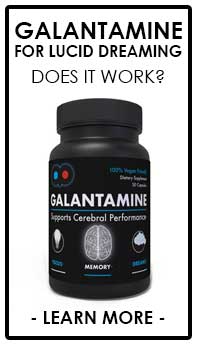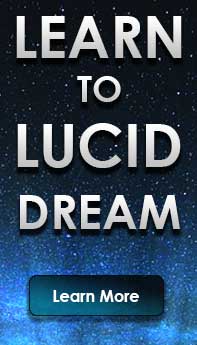
Memory of Dreams Continued
I have spent a great deal of time over the last few months exploring more into how the memory of the dream experience is formed. A question that I ask over and over again is if it could be possible to remember every dream and if you did, what exciting things would you learn from the dreams. Though no one fully understands how memories are formed in the first place there are theories as well as studies done on the subject and thanks to that I have been able to put together a small picture of this puzzle and wanted to share it with others.
Dreams as we all know happen in our brains as we sleep, and happen many times throughout the night. The issue is that for some reason we only remember a select few of the dreams if we can remember them at all. It would seem from research as well as other peoples experience that dreams are remembered more as the night goes on. Most researchers today would attribute the ability to retain more dreams as the night goes on to REM. REM sleep is prevalent the longer we sleep, and it’s thought that we dream in REM and so it’s a readily accepted theory. There is only one problem with this idea, why do we seem to have issues remembering NREM type dreams, and also REM dreams that happen throughout the night? That’s right we don’t just dream in REM, and we also experience a number of REM phases over the period of the night that we don’t remember. Something more is going on here.
Activation Synthesis Hypothesis
Years ago I used to support the activation-synthesis hypothesis which was first suggested by Allen Hobson as a reason for REM and that REM was the cause of dreams. The hypothesis went on to discuss that an increase in acetylcholine production in the brain allows for the memory of dreams during REM. Though many elements in the hypothesis were true, it’s important to note that it’s been proven wrong that REM doesn’t cause dreaming and that dreaming and REM are independent of each other. At any rate, it still seems relevant that acetylcholine does play a role in memory and dream based memory but how much so? From asking this question I found that there is more to memory and dream memory than just, acetylcholine.
Greyouts in Memory
Because I wasn’t getting a lot of my questions answered by staring into Hobsons hypothesis, I started to look at other forgetful dream-like states that the brain can be forced into, involving blackouts and greyouts. The reason for this is that they also followed a lot of the same tendencies of a dream-like state, including fragmented memories.
I first looked at alcohol consumption and its effects on the brain and memory. People who drink heavily will report some type of blackout or greyout where there are fragmented memories of the period when they were intoxicated. Interesting enough it seems that these experiences greatly compare to those of dreams, except the person is awake. There also has been a great amount of research done on alcoholism and memory since it’s a bit more of a social problem than dreaming, and due to that research we understand some elements that come into play regarding memory.
Alcohol is considered a depressant not because it makes you depressed but because it depresses the nervous system. It does so by releasing GABA which is a neurotransmitter. GABA release into the hippocampus has been shown to reduce the ability of the brain to produce new memories. The same thing happens when people smoke marijuana as marijuana releases GABA into the hippocampus. Interesting right? GABA with both alcohol and marijuana both produce dream-like memory loss. GABA is also involved in the circadian rhythm and depresses the system to calm down and go to sleep. The next question I asked myself, is what neurotransmitter is the opposite of GABA.
With this in mind, I decided to look at the excitatory neurotransmitter glutamate. Glutamate does the opposite of GABA. It’s an excitatory neurotransmitter and is found highest during waking states. Its also found in the hippocampus in states where memory is most active. Glutamate is also found to be released after the use of a medication called galantamine.
Galantamine in Lucid Dreaming
Most research for galantamine as well as the lucid dreaming community focuses on galantamine and its interaction with the neurotransmitter acetylcholine. Though it is true that galantamine increases acetylcholine by reducing the ability of the brain to use up excess acetylcholine, and also it is true that acetylcholine has been linked to memory formation, it’s more likely that its effect on the neurotransmitter glutamate is linked to memory than acetylcholine. I say this because of the link to memory formation in other substances that cause dream-like greyouts and their link to GABA.
Here is the simplified findings:
+ Acetylcholine = + REM
+ GABA = – Memory formation
+ Glutamate = + Meory Formation
+Galantamine =+ Glutamate
+Galantamine =+ Acetylcholine
Further Evidence for Glutamate
Galantamine has been used as a lucid dreaming supplement for many years now, and there are a lot of examples of how it improved the dreamer’s awareness while asleep. These lucid dreamers often express that after taking galantamine they find it harder to go to sleep, they indicate a higher level of awareness and a higher level of recall with their dreams. There has also been a recent study done on galantamine and its ability to increase lucidity in dreams but has not been released to the public yet.
I have used galantamine for over many months and will report on my own dream recall with the medication at a later time. As for the success rate of which I can become lucid in a dream with the help of galantamine, I am lucid about 8 out of 10 times with galantamine. Without galantamine, I am lucid about 1 out of 50 times. Obviously, this medication is doing something with memory formation or recall.
Galantamine for one reason or another is restricted from entering the UK. Because of the restriction, lucid dreaming supplement providers have decided to replace galantamine with huperzine-A which increases the amount of acetylcholine that is available in the brain, much the same as galantamine does. What it doesn’t do is increase glutamate. The results, people have described Huperzine-A to have some effect on lucid dreaming, but nowhere as useful as galantamine. The reason, huperzine-A could be increasing the amount of REM that we have in one night, but again not improving the memory formation process required to remember the dreams. I also have personally used huperzine-A and can attest that I found it non-effective for me, and nowhere on the same level as galantamine. So again it seems that galantamine and its ability to increase glutamate in the hippocampus is an important part of how its effective in forming memories during sleep.
The Whole Picture
Though I know that this isn’t the whole picture when it comes to how memory is formed or operates, I still believe its an important view into how we can improve memory during sleep and improve our ability to recall dreams and strengthen lucidity. I also think this shows that when we are trying to develop our memories during sleep, we should be focusing on supplements and techniques that reduce GABA. GABA is present for one reason or another at its highest during sleep, and for that reason, I am sure that it is important for us to not remember our dreams. We should take caution knowing this as we continue to explore our minds, consciousness, and lucid dreaming.
Lee Adams is a Ph.D. candidate in Jungian Psychology and Archetypal Studies at Pacifica Graduate Institute and host of Cosmic Echo, a lucid dreaming podcast, and creator of taileaters.com, an online community of lucid dreamers and psychonauts. Lee has been actively researching, practicing, and teaching lucid dreaming for over twenty years.
Join the Discussion
Want to discuss more about this topic and much more? Join our discussion group online and start exploring your consciousness with others like yourself.





Recent Comments